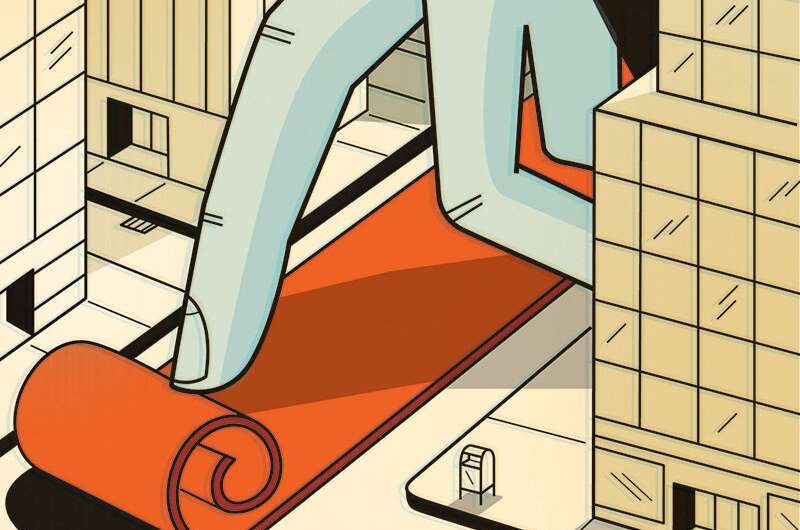Many workers are seeking a return to urban offices, partly due to the appeal of nearby amenities. Credit: Harry Campbell
After nearly five decades headquartered in suburban Chicago, McDonald's ditched the burbs and unveiled its sterling new complex on the edge of the city's downtown. Deluxe Corps, a financial services company with an annual revenue of $2 billion, recently relocated from Shoreview, Minnesota, to downtown Minneapolis and Visa announced a move from a Foster City, California, strip mall to San Francisco's über-hip Mission Rock neighborhood.
The impetus for each move was simple, says Richard Green, professor of public policy and economics at the USC Price School of Public Policy: "The cities are where the people these companies want to recruit want to live."
Then, COVID-19 arrived. As workers disappeared overnight from office buildings, many predicted the demise of downtowns as bustling business hubs. With so many employees working from home, why would businesses ever need to maintain expensive downtown addresses?
But Green, the director and chair of the USC Lusk Center for Real Estate, isn't betting on the real estate's demise.
For one, many executives want their employees back in the office. Specifically, Green sees finance, tech and creative services, as well as growing companies, as eager to reestablish vibrant, people-filled offices.
"It's tough to build a great company online," Green says. "People need to come together to gel and forge a rich corporate culture."
Second, many employees, particularly younger employees, are itching to return. Nine of 10 millennials in a recent Eden Workplace survey said they wanted to be back in the office. That doesn't surprise Green, who says many put a high value on a city lifestyle that offers restaurants, active social scenes and sporting events right outside the office when the workday is over.
"And don't underestimate the role of dating in this, too," he says. "Even in the world of online dating, there are advantages to being close to others and bumping into people."
Finally, cities have proven to be resilient, evolving organisms capable of change. Green specifically cites Los Angeles, once the nation's aviation and aerospace manufacturing center for most of the 20th century before reinventing itself as an entertainment and creative hub when the aerospace industry waned.
"Major cities have faced downtimes before and evolved," he says. "Special cities will continue to be special cities as it relates to work. Memories are short, and people will return to their office buildings downtown."
Provided by University of Southern California
























